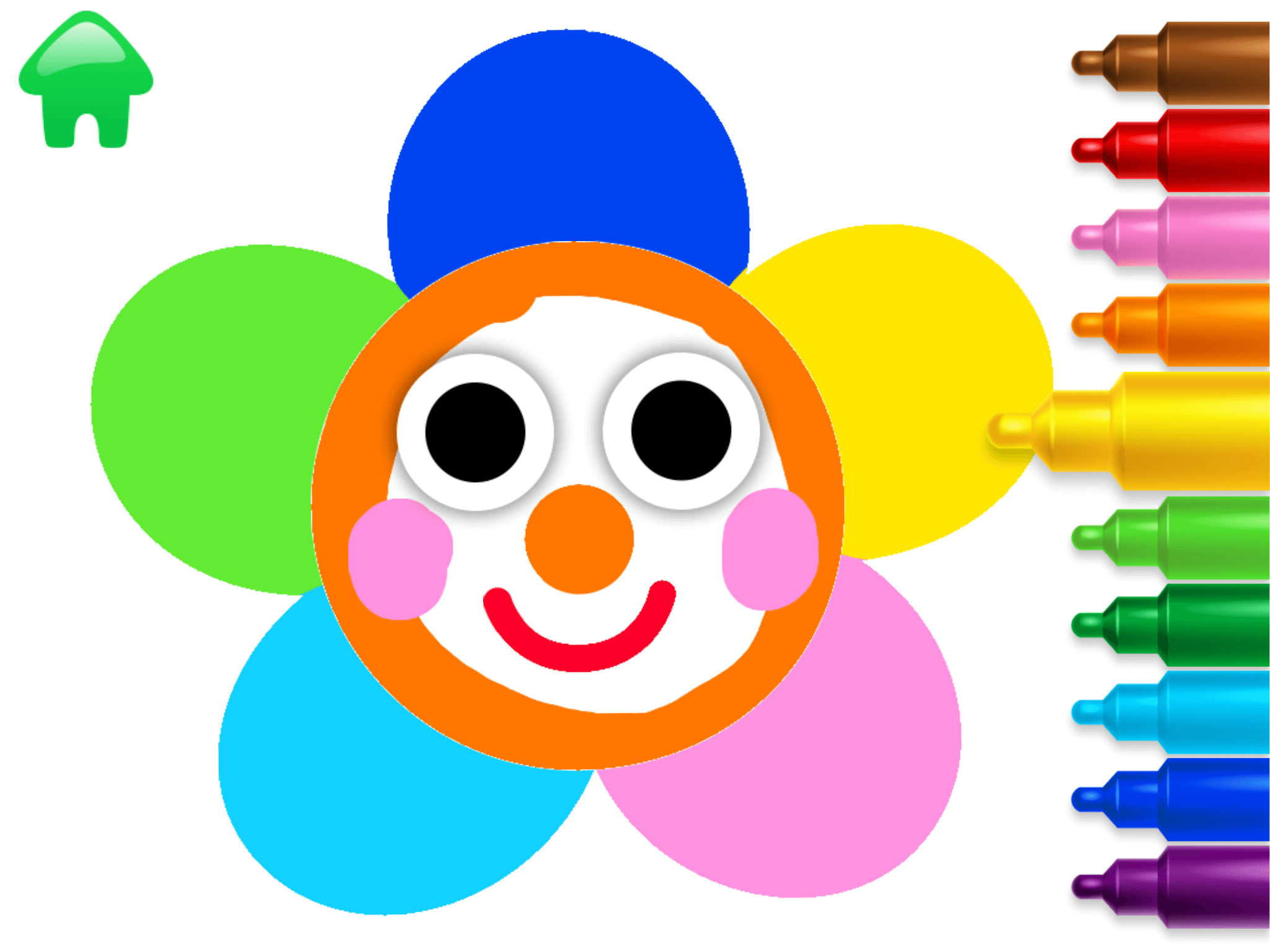Grammar practice Worksheets for Ages 7-9
8 filtered results
-
From - To
Discover engaging grammar practice worksheets tailored specifically for children ages 7-9 on our website! These worksheets are designed to enhance grammar skills through fun exercises that promote understanding of sentence structure, punctuation, and parts of speech. Perfect for strengthening language abilities, they offer a variety of activities that keep young learners interested and motivated. Teachers and parents alike can easily access and print these resources for home or classroom use. Encourage your child’s confidence in writing and speaking with our comprehensive grammar practice worksheets—where learning meets creativity! Start exploring today and watch their language skills flourish!
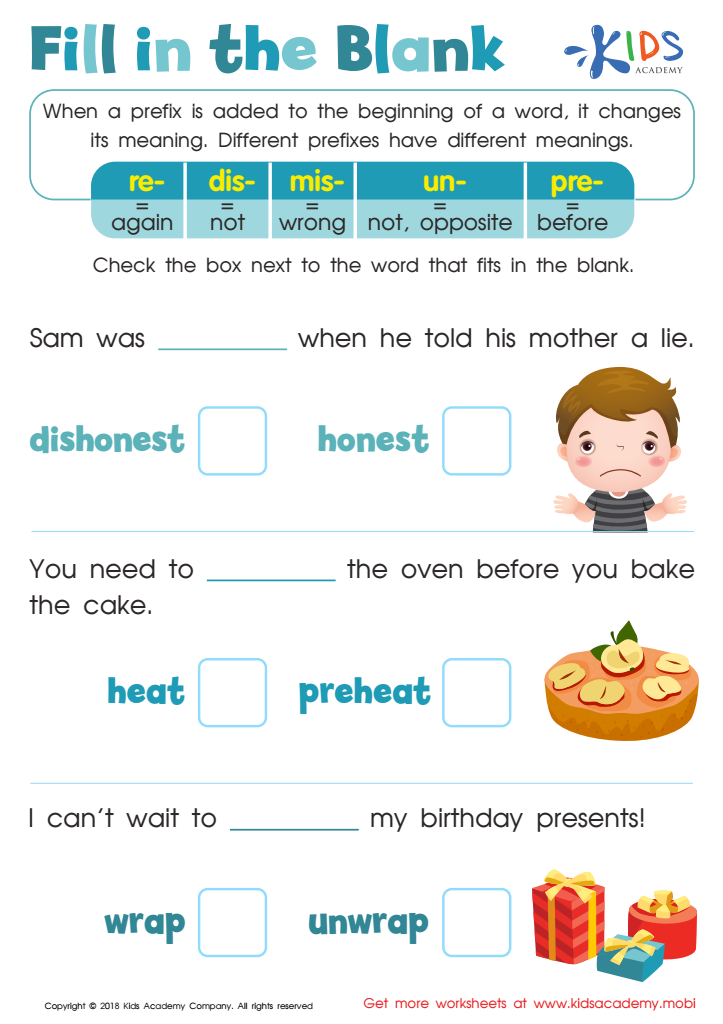

Reading: Fill in the Blank Worksheet
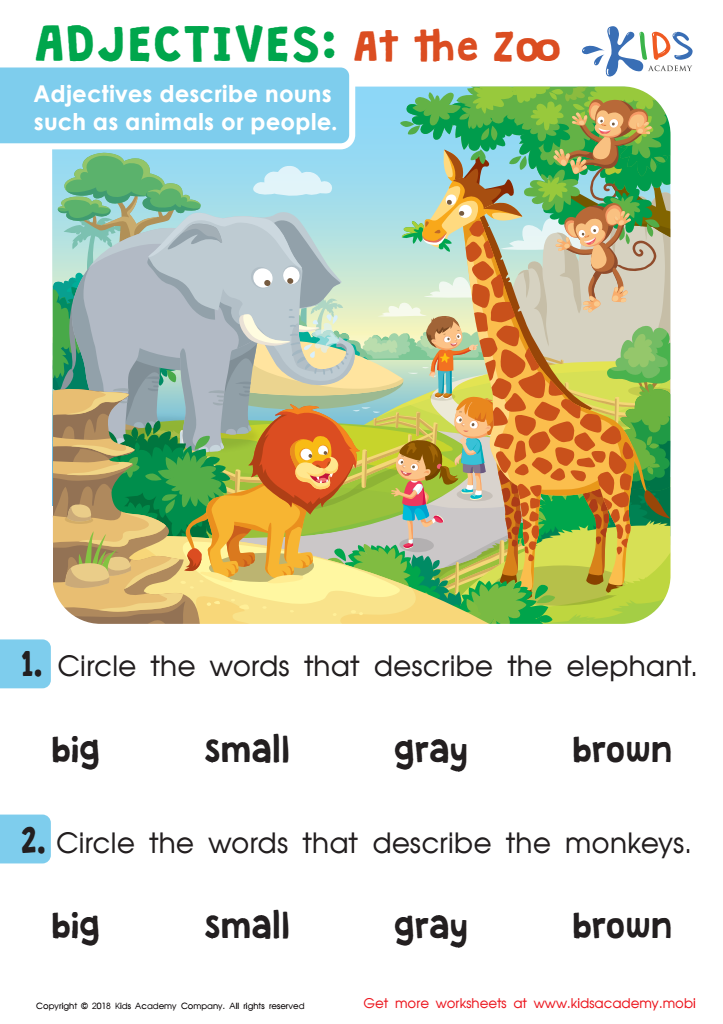

Adjectives: At The Zoo Worksheet
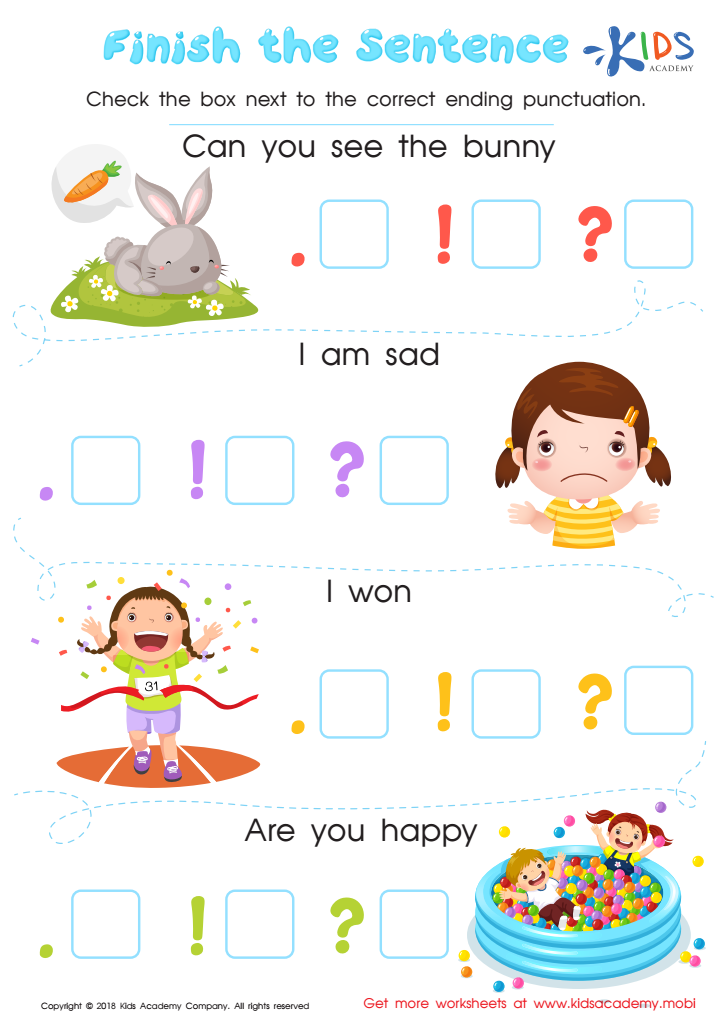

Finish the Sentence Worksheet
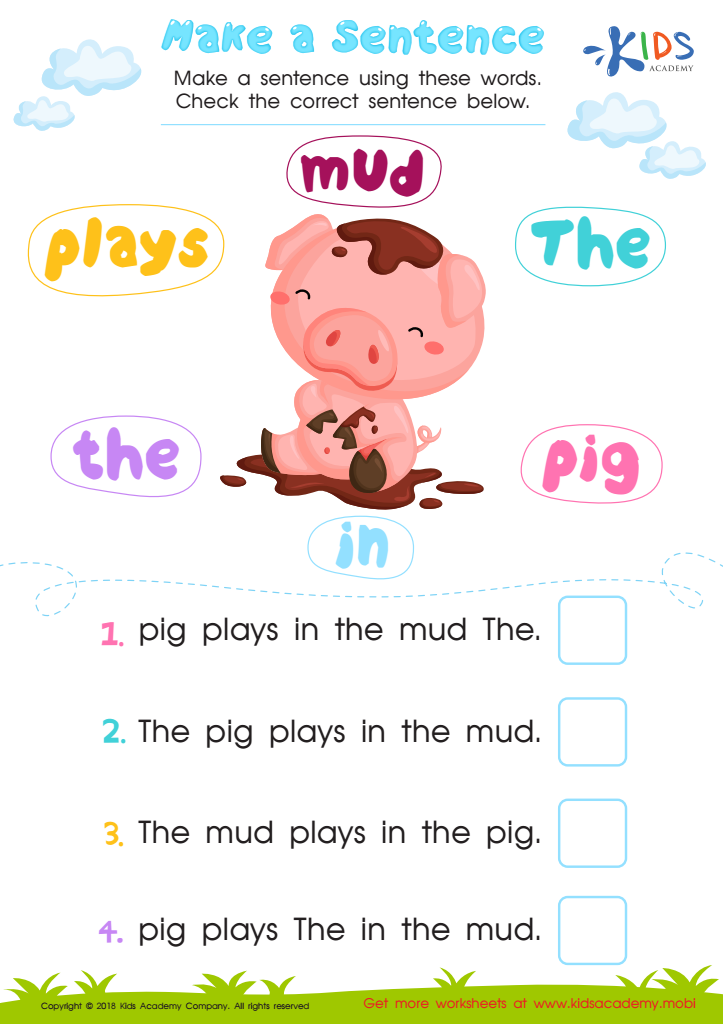

Assessment: Make a Sentence Worksheet
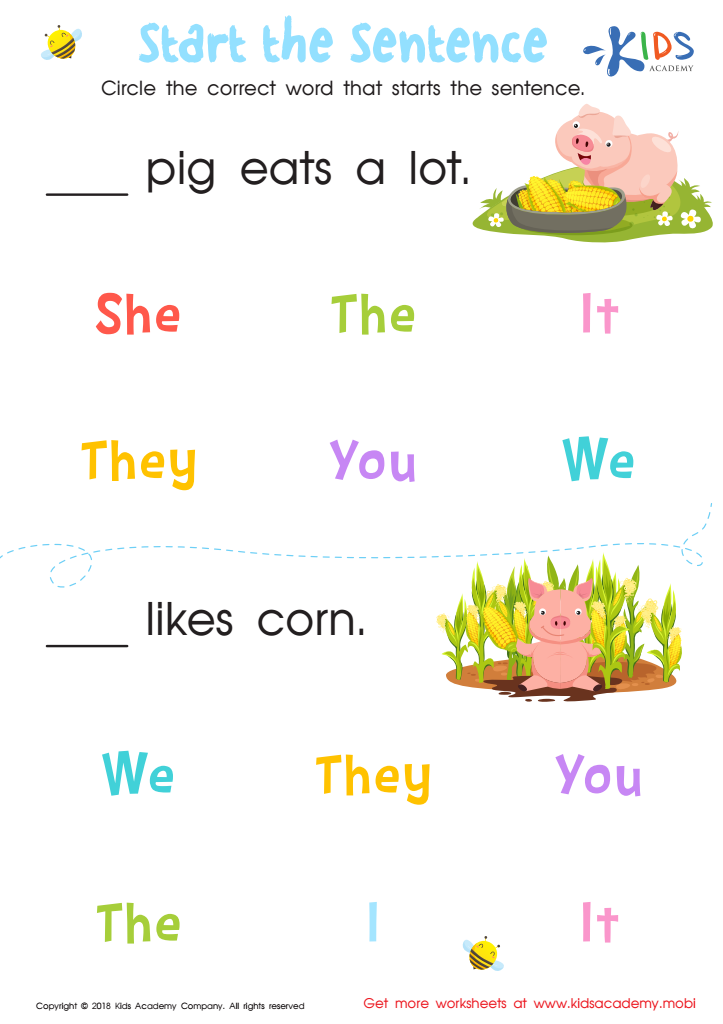

Start the Sentence Worksheet
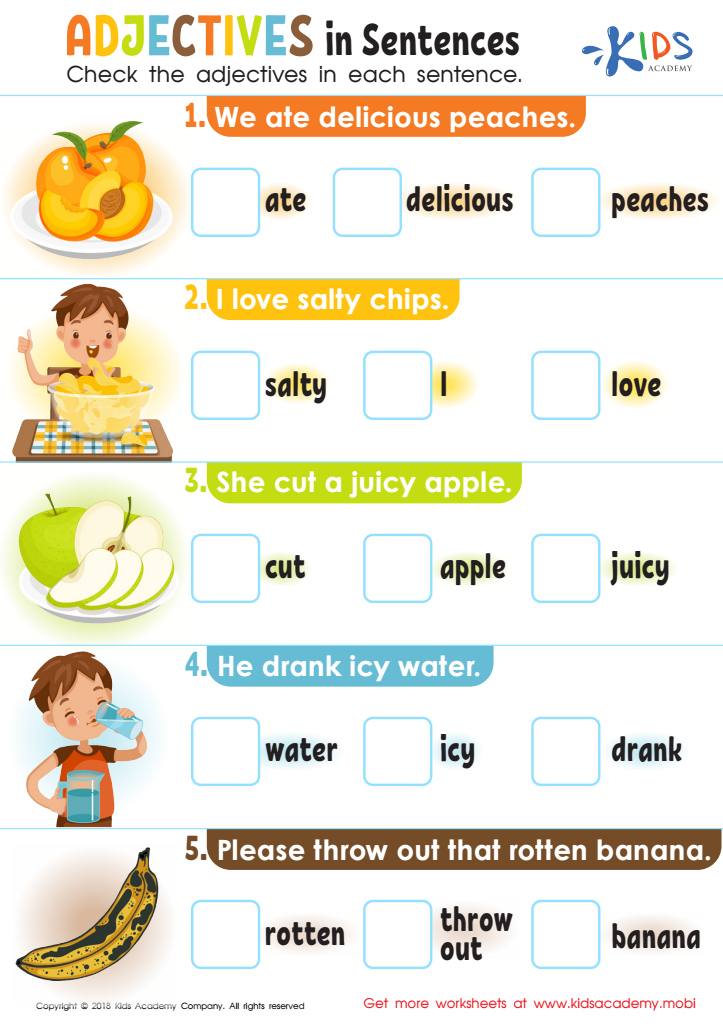

Adjectives in Sentences Worksheet
Grammar practice for children aged 7-9 is essential because it establishes the foundation for effective communication skills that will benefit them throughout their academic and personal lives. At this stage, children are developing their reading and writing abilities, and a strong grasp of grammar enhances their understanding of language structure. It helps them articulate their thoughts clearly, improving both written and verbal communication.
Moreover, grammar skills foster confidence in children. When they understand how to construct proper sentences and use punctuation correctly, they are more likely to express their ideas freely and participate actively in discussions. This confidence translates into better classroom engagement and heightened participation in social interactions.
Additionally, strong grammar skills are often reflected in academic performance. Proficiency in grammar can lead to better scores on writing assignments, reading comprehension tests, and state assessments. Thus, emphasizing grammar practice at this fundamental stage not only supports literacy development but also prepares children for future educational success.
Ultimately, investing time in grammar practice is crucial for fostering a child's overall language development and promoting their critical thinking abilities, setting the stage for lifelong learning. Engaging children in fun grammar activities can make learning enjoyable and impactful.

 Assign to My Students
Assign to My Students





